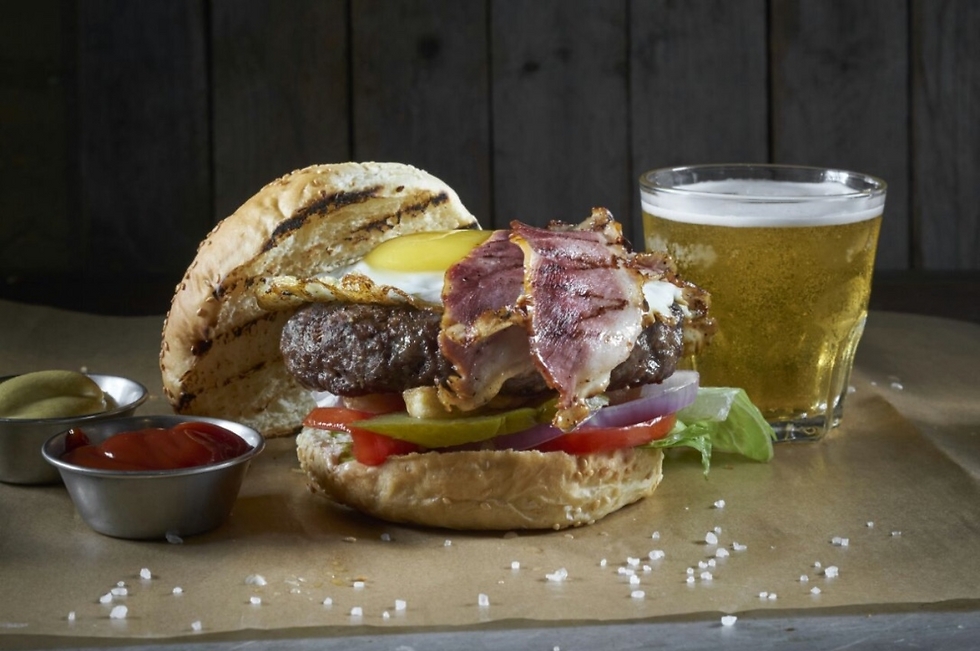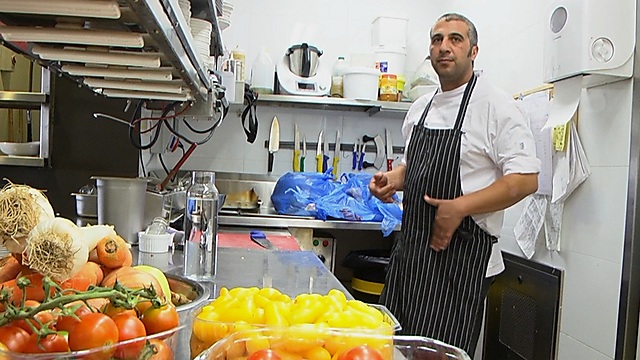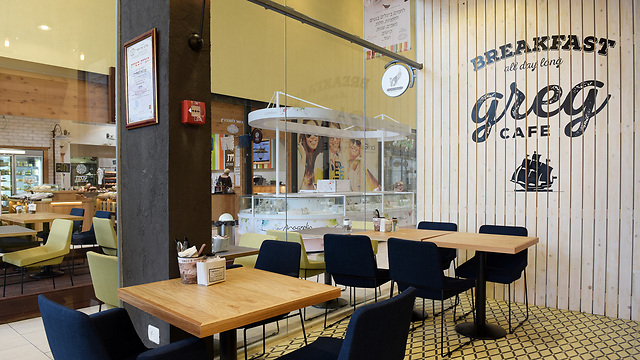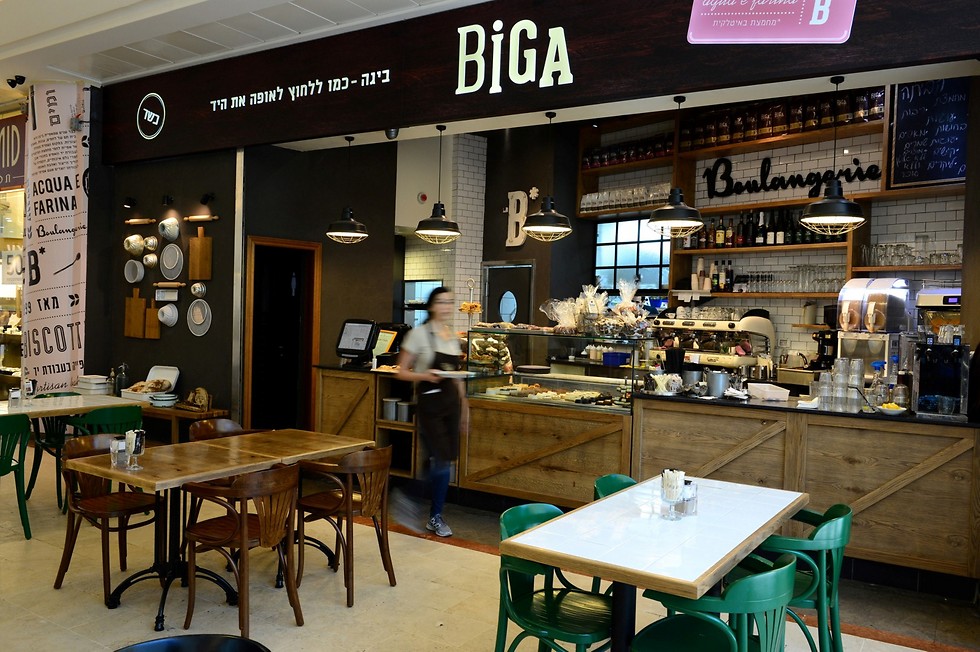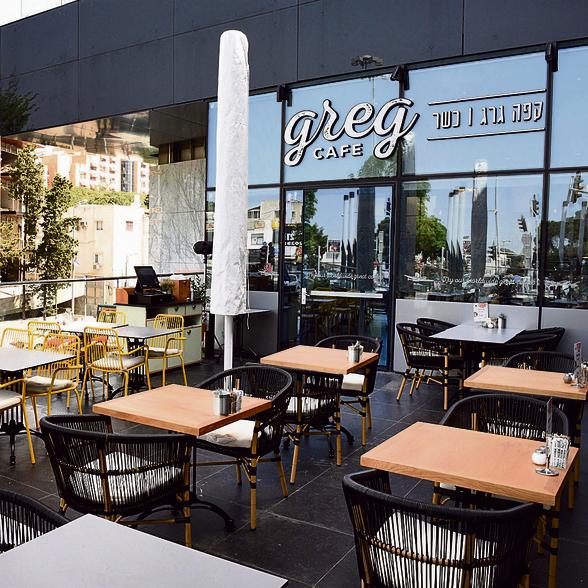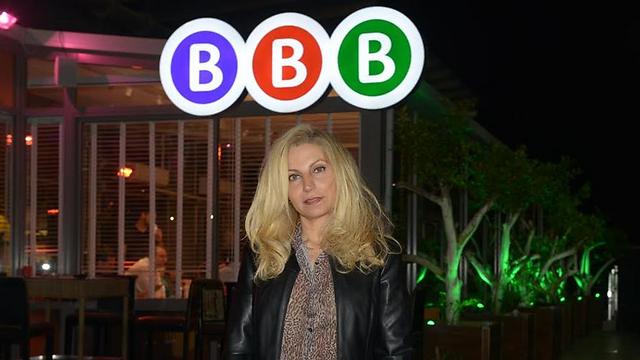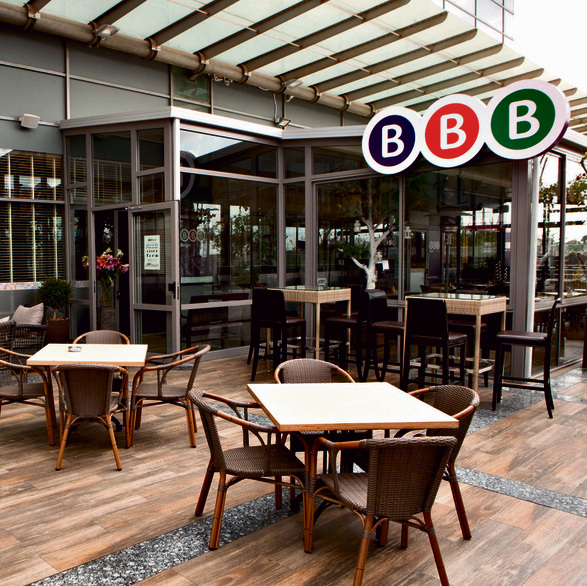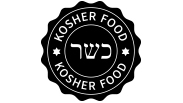

The kashrut trend: More and more businesses go kosher for financial reasons
Amid an acrimonious debate raging in Israeli society centering on religionization, and religion's supposedly growing presence in our daily lives, there are quite a few restaurants, cafés and other places of leisure deciding to go kosher—not necessarily because of religion.
It certainly didn't take very long. Mere months after its whirlwind introduction to our lives, the phrase "religionization" has undergone the same transformation "fake news" has—it was completely and forcibly stripped of its meaning. Instead morphing into an idiom, it now seems legitimate to break it out in any situation that has even the flimsiest of links to either tradition or religion.
And just like "fake news," the overuse of "religionization" fails to differentiate the wheat from the chaff, which produced the following absurdity: a Rehovot burger joint has recently decided to go kosher and was immediately accused of religionization (or maybe submission to religion?) by hundreds of angry commenters who all viewed the absence of bacon and cheese from their buns as a threat to their secular way of life.
"You just lost another customer, and all because of religious coercion," said one commenter. "You're well on the way to bankruptcy, is this Bnei Brak?" asked another. A third summed it all up by saying, "We'll never set foot there again. There are plenty of other alternatives serving food that isn't castrated." Needless to say, these complaints were accompanied by a generous helping of exclamation points and angry emojis.
The man behind the decision drawing so much ire is Erez Berg, owner of a Wolfnights location in Rehovot's Science Park. The Wolfnights chain was born on Tel Aviv's Lilienblum St. in 2008, serving up quality burgers with a multitude of over-the-top toppings to night owls wishing to soak up some of the alcohol with carbs and meat.
As time went on, the chain attracted more and more of the people working in the area going out to lunch, and today it numbers three branches—two in Tel Aviv and the aforementioned one in Rehovot.
Berg became this branch's owner a few months ago, and it did not take him long to map out the surrounding region when it comes to his consumer base and the alternatives offered by his competitors.
"Apart from our Wolfnights restaurant, Rehovot also has a BBB, Black, Hamburg and Burgerim restaurants, all quality burger places and none of them kosher," he explained.
"This goes against the fact Rehovot is a city with a pretty significant religious population, a religious mayor and a lot of traditional people who care about kashrut," he went on to say.
"Apart from that, the Science Park isn't the bar and nightclub area it used to be, while our restaurant continues operating as if partygoers still come in for burgers in the middle of the night. As soon as I figured out our public now consists less of partygoers and more of people who work in the park and pop in for lunch, I decided to turn the place kosher, thereby winning over a crowd of religious and traditional families. Besides which, I think a business that works nonstop has a sort of stressed-out vibe, and the fact we take Fridays and Saturdays off also sends a more laid back, relaxed message to our clients."
People on Facebook don't buy it and think you've given in to religious coercion.
"Look, Wolfnights may sell bacon and cheese, but it's not like it waves the flag of 'unkosher food' in Israel. It pained me to read the comments to our Facebook post reporting our closure for a couple of days to make the place kosher. All kinds of people displayed unjustified hatred, and I'm not really sure why. Our burger will continue being delicious, even if it's now kosher, and there are lamb bacon and vegetarian cheeses out there.
"Everything non-kosher has a delicious replacement, which is in no way inferior to the original. That cuts both ways, by the way—last Shavuot we had a festival of cheese burger toppings and religious people wrote, 'I hope your place burns down' on my Facebook. I'm completely secular, but I just made a simple calculation and figured out there are more religious people in Rehovot than customers I'd lose by not being open on weekends. That's all there is to it," he said.
The Rehovot Wolfnights is far from alone. Lately, there has been a growing number of restaurants and cafés across the country choosing to go kosher.
More than seven million shekels were invested in the creation of Jerusalem's Kinor Bakikar restaurant, and the decision for it to boast a kashrut mehuderet certificate—and appeal to religious diners—was made before it ever fed its first customer.
Head chef Kobi Katani didn't have a hard time reaching that decision. "We all come from traditional homes and that was important to us," he said. "Moreover, this is a very significant market segment in Jerusalem, and kashrut has zero influence on the food's taste or quality anyway."
"We're considering our audience, and beyond any financial considerations, we're Jewish too," he concluded.
This phenomenon, however, isn't limited only to places with a clear majority of religious or kosher-observant people like Jerusalem, but is now starting to crop up in cities like Tel Aviv, Kfar Saba and the rest of the secular cities of the central region.
The calculation most business owners make is an economic one: reading the market often leads to the conclusion that profits from the Haredi, religious and traditional public will lead to more business than the losses incurred by not being open on Shabbat. The fact that employees need to be paid 150 percent on weekends also plays a part in this decision.
Many businesses also explain the desire to allow their employees, and the business itself, one day of rest a week lies at the heart of the decision.
At least in some of the cases, however, that plays more like a counterargument to the claim it's mere religionization and less of an actual reason, because at the end of the day, what businesses care about is their bottom line, and not their contribution to the balance of harmony and relaxation in the world.
Kosher food is viewed as healthier
Ziv Reshef-Simchoni, who does consulting for different food businesses, said he helped several businesses who wished to make the switch to being kosher, and that the exact type of kosher certificate also plays a role.
"In peripheral cities, for example, you can see businesses that already have a kosher certificate who go for a mehadrin one to attract a larger audience. That's not so applicable to the Tel Aviv metropolitan area," he explained.
"On top of that, since Israel doesn't have clearly defined standards for food quality, there's a sort of weird situation where the rabbinate is in fact the only institution that sets any kind of standard at all," he went on to say. "Many people assume, then, that if a place is kosher, it invariably has clean or even healthier items. That has no basis in reality, but many businesses are still aware of it, which is all the more reason for them to go kosher."
One of the chains to undergo a very serious kosher transformation over the past few years has been the Greg café chain, which also owns the Biga bakery and café brand. Seventy percent of Greg's 120 branches in Israel are kosher, half of those with a mehadrin certificate.
Just recently Greg locations in the Tel Aviv Port and Rosh Pina have gone kosher le'mehadrin, while the Rishon Lezion Cinema City branch that already was kosher is now mehadrin.
The Biga chain, meanwhile, was kosher when it opened, and of its 25 branches only those in Holon and Karmiel are not kosher and are open on Shabbat. When it comes to large chains, what often happens is that if a branch is located in a shopping center that isn't open on Saturday anyway, that's quite an incentive for the owners to turn it kosher.
"Greg is only adjusting itself to the demands of its clientele, and just like we have a vegan menu and many gluten-free options, this is our way of accommodating our Haredi clients, by opening mehadrin branches for them," said the chain's Vice President of Marketing Mili Dror-Akshlomo.
"In Rosh Pina, for instance, there are a lot of religious and Haredi people coming in from Safed, Kiryat Shmona and that whole area and so the switch to mehadrin was necessary, and sales have proven that by going up," she said. "In the Tel Aviv Port there is nevertheless a substantial religious or Haredi populace searching for food options, of which there are precious few. Since our branch there turned kosher, sales have shot up. This has a lot to do with the religious sector really opening up to the world of cafés in the past few years as legitimate avenues for leisure."
Burger chain BBB, which also owns the Burgerim brand, underwent a similar process. Chain CEO Ahuva Turgeman said a new kosher location is set to open in Jerusalem's Hillel Street and a mehadrin branch was just inaugurated in Kiryat Gat.
Two of BBB's 27 locations have turned completely kosher and five additional ones only sell kosher meat and don't serve meat and dairy on the same plates.
"There are a lot of locations where the clientele wants kosher meat, even if the place itself isn't kosher," said Turgeman. "In Netnaya and Tiberias, for instance, a lot of people are having religious awakenings and want just that."
The Burgerim chain, on the other hand, was kosher to start with, as all 55 of its branches boast a certificate. In 2017, the chain has seen a 20 percent uptick in sales.
Assaf Cohen, owner of a Bleecker Bakery location in central Kfar Saba, discovered another advantage to keeping kosher: events for the religious public.
Only two weeks after the decision to turn his café kosher, he said he received four requests to close it for private functions for religious people, on top of the increased traffic on weekdays.
"One of the reasons for this decision was that I had a very hard time at finding people to work weekend shifts," Cohen said. "It wasn't for religious reasons either, they just wanted to have a day of rest. And you need the extra manpower on weekends because there's work."
"Bleecker Bakery has another branch in Kfar Saba that has always been kosher," he continued, "and we saw religious people coming to it in droves, so we decided to give it a shot. Before making the switch we asked our clients, who said they'd love to have a kosher place right by their house."
Did you also get criticism from secular people who considered this move religionization?
"Some clients regretted the switch, saying central Kfar Saba doesn't have a lot of places open on Shabbat, but eventually it all comes down to numbers, with more people pleased with the move than there are naysayers, and that's what matters."
In search of a day of rest
Proving this trend isn't limited only to eateries, Jerusalem's Time Elevator will now close its doors during Saturdays and Jewish holidays, after 17 years of operating seven days a week.
The decision came a year ago, following a move to a new building in the Mamilla Mall.
Closing on Shabbat was a "strategic decision intended to take into account the sensibilities of our wider public," said Ilan Rotem, CEO of the Time Elevator.
The motive behind it, he claimed, wasn't purely financial. "I'm motivated by a love of the people," he said. "I truly believe we should work to bring the people of Israel closer together and, despite not being religious myself, believe days of rest should be respected. We made a decision, and we're very content with it."
Another non-restaurant deciding to take a break on Shabbat is the Galita Chocolate Farm in Kibbutz Tzova, not far from Jerusalem, joining the kibbutz's hotel that now boasts no less than a mehadrin kashrut certificate.
In their case, it was a financial decision. "Most of the groups we get today are from companies with religious employees, and there's a demand for a mehadrin certificate," explained Kobi Epstein, CEO of the Tzova Tourism Corporation.
"We had 100-person conference at our hotel," he recounted, "of which nine women were Haredi. If we didn't have that mehadrin certificate, we couldn't have hosted the conference at all."















